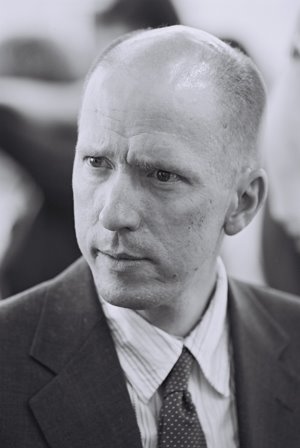In the next few posts I plan to write about Malcolm Gladwell's book,
Outliers. I am about halfway through listening to the Audible.com version that is read by Gladwell. While the book keeps my attention as well as a good novel, the writing and reporting are engaging, the ideas fascinating, I frequently find myself complaining, "No way!" out loud in the car or on the walking path. So I decided yesterday to see what critiques the book has already received. I started with
the Wikipedia article of course. And there I found a link to a
review in The Independent. The harshest criticism is contained in the following passage:
Not for the first time, you wonder why Gladwell does not yet hold a tenured professorship at the University of the Bleedin' Obvious. Yes, he's right, but too often in a trivial, short-winded and centrifugal style.
the conclusions he arrives at here are so obviously self-evident as to be banal.
Did we read the same book? While there are some claims that Gladwell makes that may seem obvious, I don't think that is a key problem. Rather I think it is the opposite. There are numerous claims that are not only far from obvious, they just look downright dubious. I don't have a hard copy of the book so I will paraphrase.
- Every great contributor in a field had to spend 10,000 hours of practice to learn the techniques of the field. It is not totally clear to me whether Gladwell intends this as a necesssary condition or a sufficient condition or both. I think it is a necessary condition because it also seems to matter that the outlier have some particular form of practice, which only a limited number of candidates would have access to (e.g. Bill Gate's computer access and Beatle's Hamburg shows)
- Intelligence only helps up to a threshold: After about 130, a higher IQ does not contribute to success.
- Jews dominate the best New York law firms because they had been excluded by the blue-blood firms in the past, when hostile take-overs were shunned, and because their parents and grandparents worked in the garment industry.
- Cohort is critical. To be a leader in your field, you should have been born in the right window, e.g. 1952-1956 for the modern computer/software industry, and the early 1930s for New York lawyers.
- "Practical intelligence" is orthogonal to analytic intelligence (what IQ tests measure) and more important in determining success. Also practical intelligence is entirely a learned ability (no genetic component).
I don't believe the threshold effects at 10,000 for hours of practice or an IQ of 130. I have never seen non-linearities like that in the data and I can't think of any plausible mechanism whereby practice less than 10,000 hours would not increase probability of succes and intelligence over 130, would not continue to be of use, other things equal. I will have to look into the evidence underlying these claims, but at this point I would categorize #1 or #2 as totally implausible.
As for #3, it feels like a stretch. The theory (story) is constructed after looking at the data. It is so particular that I don't see this as a provable or easily falsified claim. I find #4 to be plausible but I would like to see rigorous statistical evidence. I have found a paper, "Dissecting practical intelligence theory: Its claims and evidence" (LS Gottfredson - Intelligence, 2003 - Elsevier) that criticises the evidence alleged to support Practical Intelligence. The author argues that practical intelligence is not clearly defined, that the tests used to measure it are not always orthogonal to IQ. Moreover, the tests were administered on groups such that were already selected for high IQ, restricting the range of IQ in the tested subjects and thereby lowering the observed correlations. Furthermore, Gottfredson says that IQ is asserted to have a 0.2 correlation with success whereas the literature finds results in the .2-.5 range.
These are key claims in the book. Gladwell spends large amounts of time explaining them, referring to academic studies alleged to support them, and providing anecdotal support through his own reporting. Not one of them is "bleedin obvious." Tenure denied.
